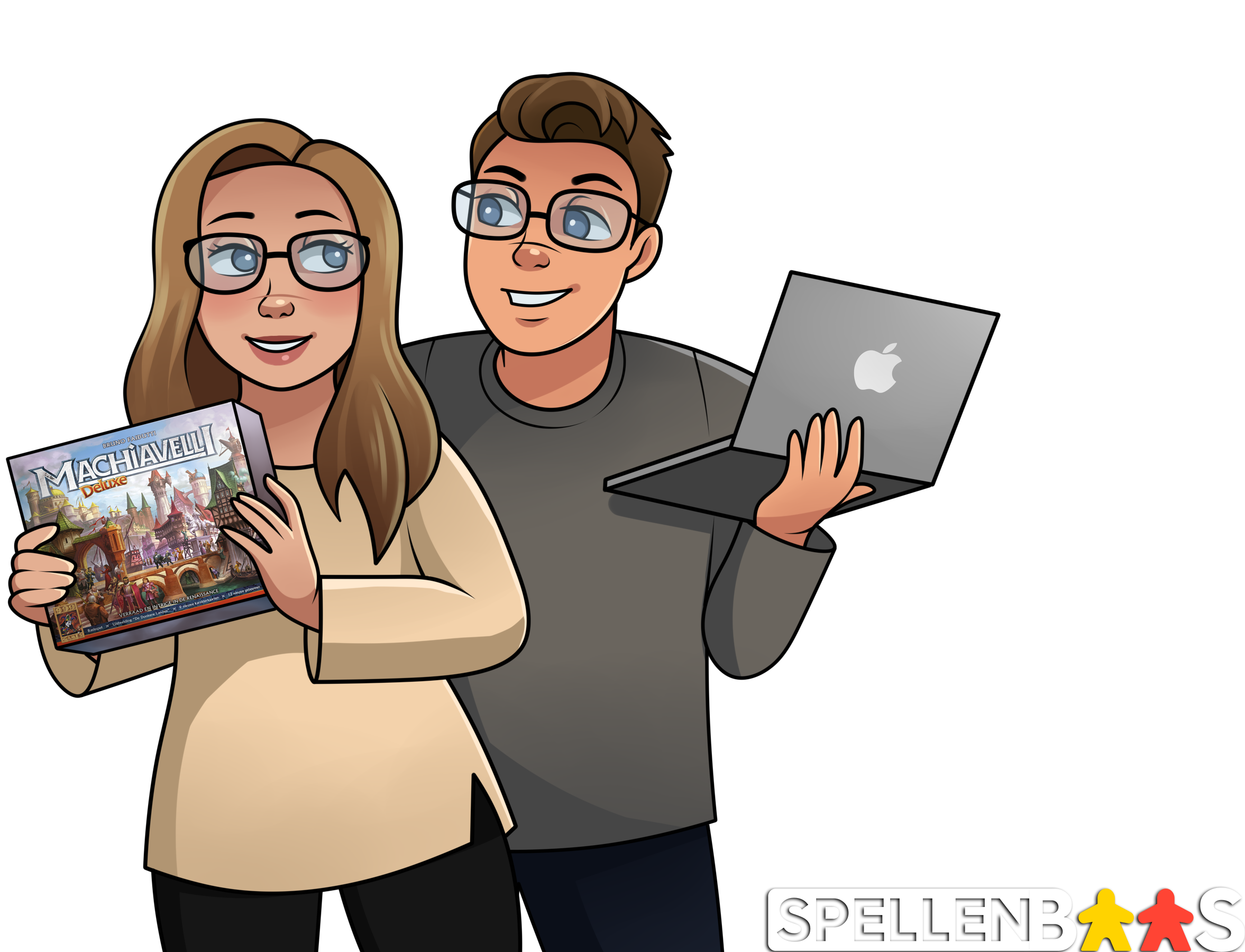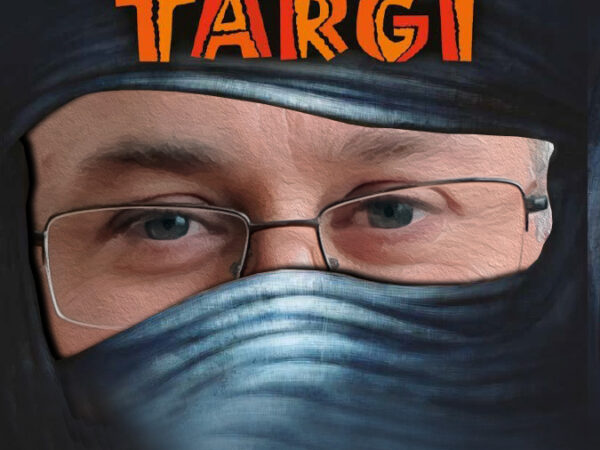Interview with Ulrich Blum & Jens Merkl
We are always curious and looking for background information of the games we cover in our articles. In this search for the game mann muss auch gönnen können we came into contact with Ulrich Blum & Jens Merkl, the creators of the popular Roll & Write “mann muss auch gönnen können”. They took the time for us to answer 13 questions. Read on for the interview with Ulrich Blum & Jens Merkl.
1) Can you tell us something about yourselves?
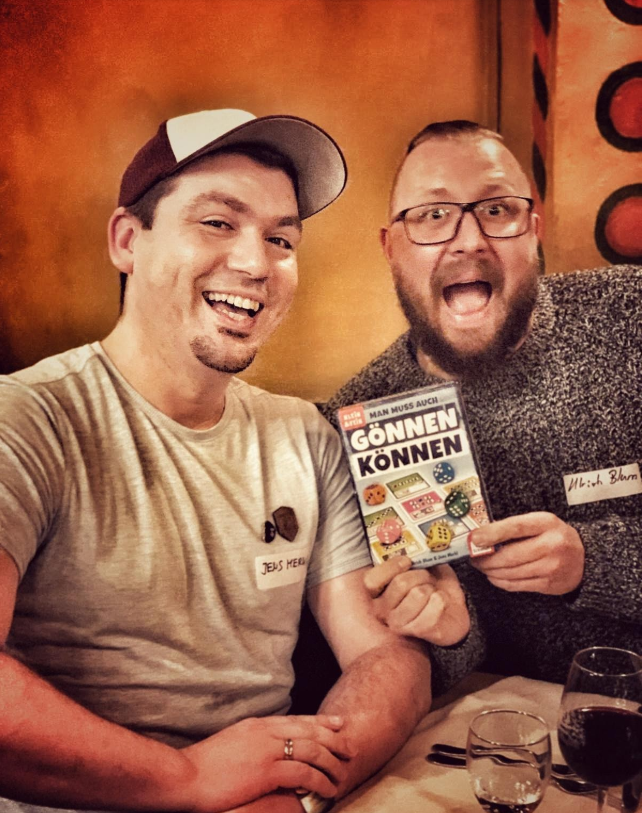
Ulrich: I grew up near Zurich, Switzerland. I’ve been playing Boardgames from early on. Professionally I first became a chef, then an actor, before getting in to full time boardgame design 9 years ago. At the same time I also moved to Cologne, Germany.
Jens: I grew up near Karlsruhe, Germany and studied philosophy, journalism and interactive media design, was a rapper, songwriter and producer, designed radio shows and now I am a full time game designer for about 9 years.
2) How did you become a game designer? Was this your dream from childhood?
Ulrich: 16 years ago I was hit by a car whilst riding a bicycle. I couldn’t work for almost a year. In that time I began designing boardgames to keep me from going insane with boredom. Through a few twists and turns this led to me winning the german game designer scholarship, which is highly recognised in the german boardgames industry. From that point on I wanted to go full time and was lucky enough to make that a reality 2 years later.
And yes, it is a childhood dream come true and I feel very blessed and privileged to be able to do this.
Jens: In fact, it always seemed to be in me. When I was 8 years old, I „designed“ a kind of a solitaire game with a standard deck of cards, that I played a lot. A few years later, I invented a soccer league with my cousin with full staff of 20 players for each of the 16 teams. We played some of the matches with a pen&paper „mechanic“ and some of them live in the garden.
After that followed a radio show role play. We recorded tons of tapes with talks, „composed“ jingles, real calls with strangers and music. It’s funny, but everything I did back then actually became part of my career. After a long way of creative stations, I ended up designing some hybrid games for a major german publisher (13 tiptoi games), which in fact reawakened my big love for analog games.
3) How did you get to know each other and how did the collaboration come about?
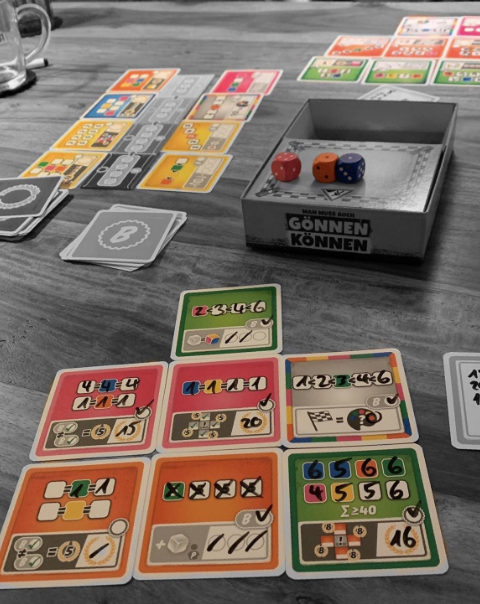
Ulrich & Jens: We both worked on projects for the tiptoi pen from Ravensburger. We’ve been introduced by one of our editors. We started working together on several projects. We quickly realised that we have a great way of working together. Unfortunately several projects we worked on never really saw the light of day or weren’t published through normal chanels. So Gönnen Können is our first wide range publication, but we’ve been working together for several years.
4) What was your idea and inspiration behind the game “Man muss auch gönnen können“
Ulrich & Jens: We regularly pitch ideas to each other to see if the other gets excited about them. Which is usually the sign that we should put some work into the idea. One day Jens said: „Imagine playing „Ganz schön Clever“ but there is no printed scoring sheet. Instead you have to build it yourself throughout the game.“ Ulrich was immediately hooked to the idea and so we started working on it.
5) Who’s better in playing “Man muss auch gönnen können”, and what’s your maximum score?
Ulrich & Jens: Thats hard to say. We don’t actually play that much together. We live several 100km apart and we both have our own test groups. Also, as a designer you don’t play your games to be „good“ at them. You usually try out some specific strategy to see if it works or is a problem for the game. And whenever possible, you don’t even play at all, but just watch others play.
6) What do you think is so good about “Man muss auch gönnen können“?
We tried to center the game (and actually we always try that) around the players emotions. From a mechanical standpoint the building of your own scoring sheet and the interesting puzzle associated with that are the core of the game. But for us the emotional dilemma with every re-roll was just as important. This rollercoaster of: „I could stop now and just do this one little thing, but If I just had another 3, I could also do this other thing, but then everybody gets something, aaahhhrggg, what to do?“
We also realised, we where on to something when players startet, what we called positive trash talking: „Sure you want to re-roll. Think of all the things you could do, if you only had another 3…“
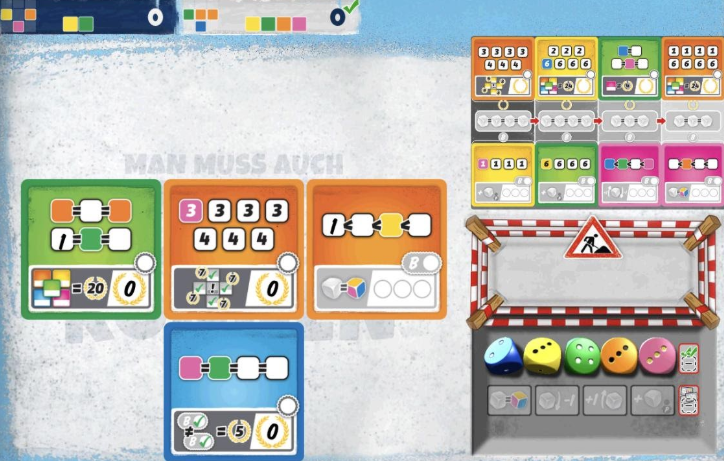
7) The game is now published by Schmidt Spiele and 999 Games, do you expect it to be released in other countries in the near future?
Ulrich & Jens: Stronghold Games has already announced the english version. Everything else we can not yet talk about.
8) Could you give us a glimpse into how designing a game works, from the idea to actually having it in your hands for the first time?
Ulrich & Jens:
That is not an easy question to answer and could fill hours of discussion. But here are some basics:
Once you have a basic Idea, make it playable as fast as possible. Even if it is only some detail about the core mechanic. There is no use in thinking about a game for days and weeks in theory. Within 5 Minutes on the table you will learn more about your game than in weeks of theoretic design work.
From there on out it is an iterative process: gather all the learnings from the test. Come up with ideas how to fix problems and how to make strong points stronger. Then test again. And so on and so forth.
After many, many of these cycles you hopefully have something to show to a publisher. And in a perfect world that will lead to a published game. But it is just as likely that the game proves to be only „nice“ and not worth publishing. To see this quickly and abandon games and Ideas not worth pursuing as soon as possible, is the key to successful game design (or any other creative endeavour for that mater).
9) Are there ambitions to make another game together? Do you happen to have any plans you can tell us about?
Ulrich & Jens: We are always working on several designs. We have a big project due to come out next year, that keeps us very busy right now. But we can not yet talk about it.
10) What are your goals? For example, do you have certain types of games that you would like to make
Ulrich & Jens: There are three central points that makes an Idea worth pursuing for us:
- Innovation. Something about the game should feel new and fresh. Even more interesting are Ideas that push the boundaries of what boardgames are and do.
- Emotions. They are very important for us. We search for the main emotional moments within a game early on and then build the mechanics in a way that brings out these emotions.
- Accessibility. If we see ways to make a game easier to play without loosing the core engagement, we will almost always go with the simpler version. That does not mean, we wouldn’t design a more complex game (and Gönnen Können ist fairly complex) but every rule needs to prove that it is absolutely necessary for the game.
11) How often do you play board games?
Ulrich & Jens: We are sure, there are people out there that play more than we do, but quite a lot. If you include testing and solo games, we both play several times a week. If you only look at the number of published games played, that is another mater. Like many game designers we would like to play more published works. But testing just takes up so much of our playing time.
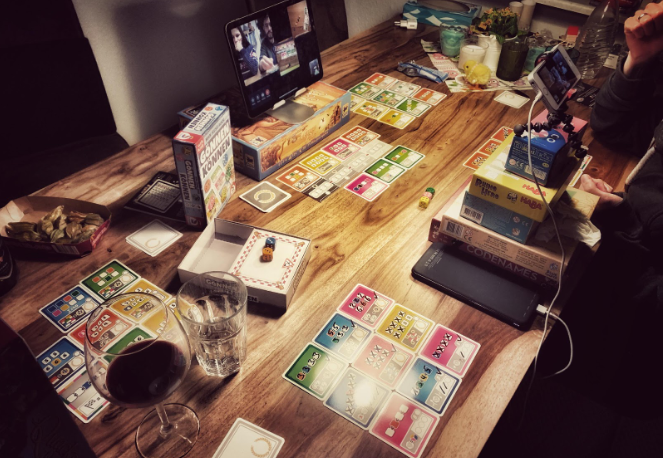
12) A disaster scenario occurs, you can only play 3 games for the rest of your life. For which games do you choose and why?
Ulrich: This will change a lot over time, but right now: Gloomhaven, 7th Continent, Twilight Imperium 4th edition. All these games fill me with a sense of awe for the design and they provide epic adventures that I won’t get tired of pretty soon
Jens: Oh my god, this is hard! I own 500 games and I, kind of, need all of them. But ok, let’s do this fast and painless: Stone Age (because we celebrate our own way playing it. We sing a lot then and for example „invite“ to the bunga bunga tent, when someone’s making new workers …), Codenames (because you can play it forever), Robinson Crusoe (because then I will finally have the time to beat this game).
13) Do you have anything you’d like to say to us?
Ulrich & Jens: Thanks for the interview!
Through this way we want to thank Ulrich & Jens again for this interview and the nice pictures! . Very nice to know more about the creators of a game. Do you have a question or do you like to see such things pass by more often? Let us know in the comments!
